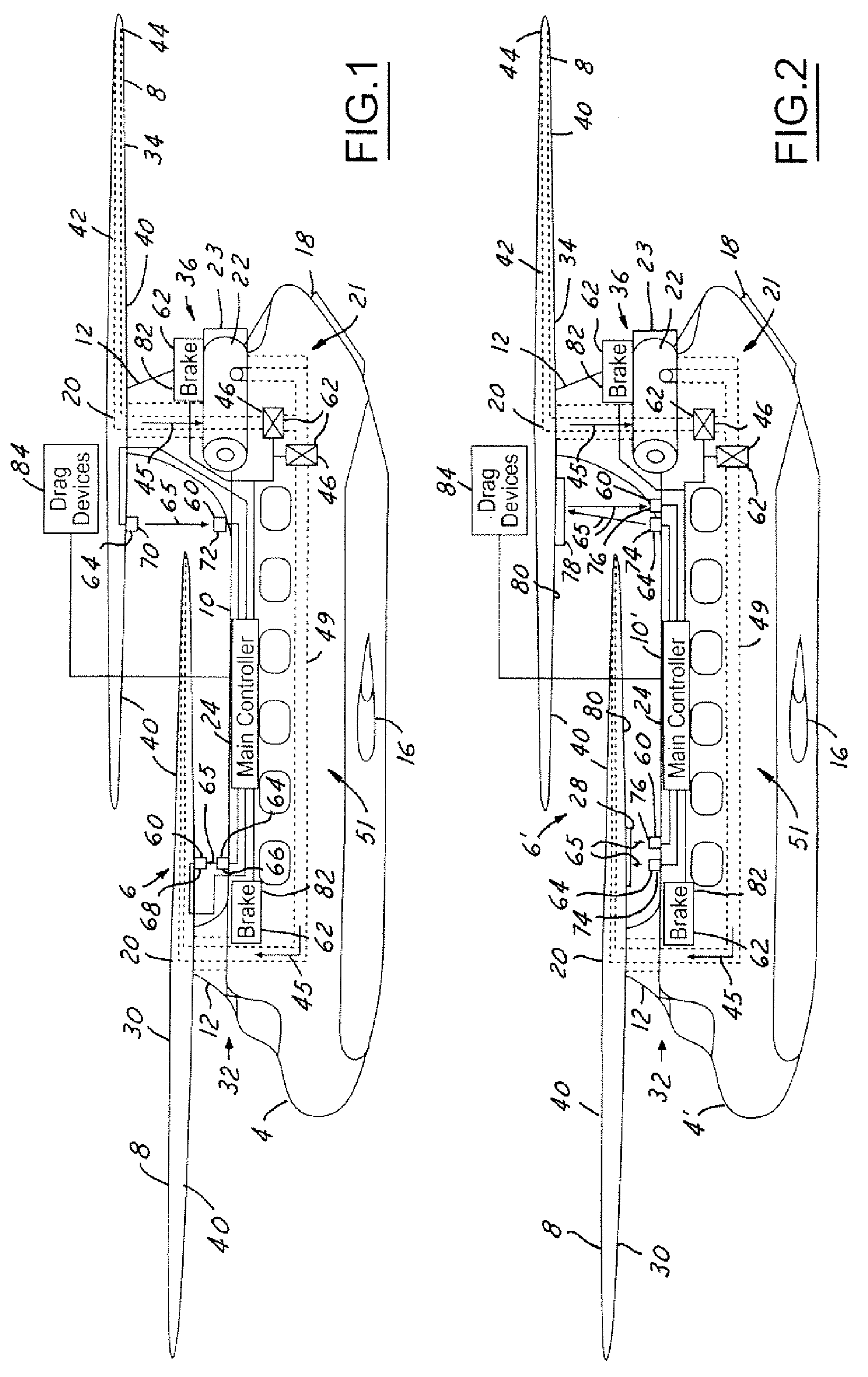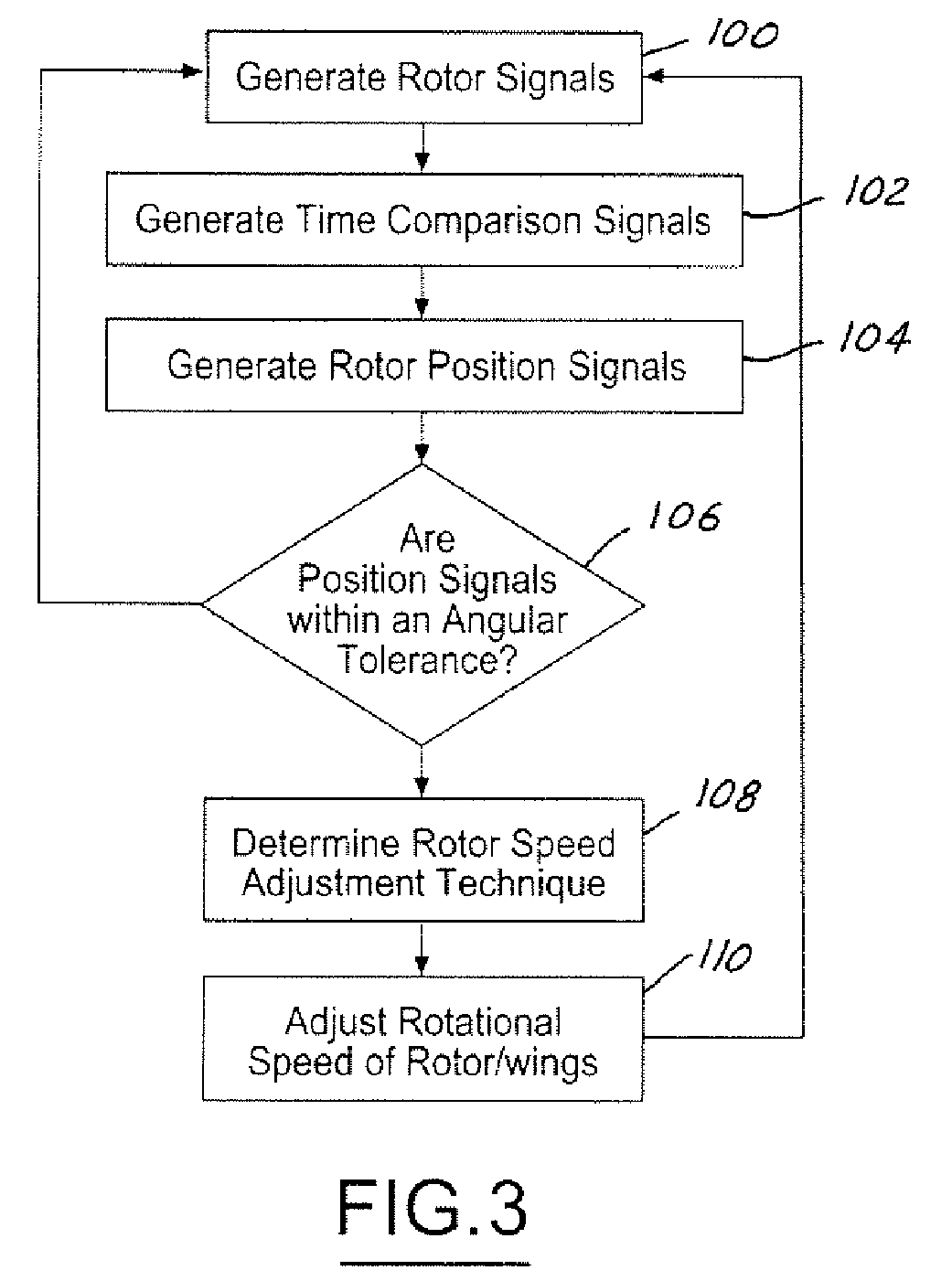Tandem rotor wing rotational position control system
a technology of rotational position control and tandem rotor wings, which is applied in the direction of aircraft navigation control, air-flow influencers, instruments, etc., can solve the problems of limited forward speed, disadvantages of helicopters, and limited forward speed, so as to increase the cargo carrying capacity of vtol aircraft, and reduce the weight of rotor relative speed adjustment system
- Summary
- Abstract
- Description
- Claims
- Application Information
AI Technical Summary
Benefits of technology
Problems solved by technology
Method used
Image
Examples
Embodiment Construction
[0018]In each of the following Figures, the same reference numerals are used to refer to the same components. While the present invention is described with respect to a system for controlling the rotational position of tandem rotor wings or dual rotors of a rotorcraft, the present invention may be adapted for various applications and systems known in the art.
[0019]In the following description, various operating parameters and components are described for one constructed embodiment. These specific parameters and components are included as examples and are not meant to be limiting.
[0020]Referring now to FIGS. 1 and 2, side views of vertical takeoff and landing (VTOL) aircraft 4 and 4′ utilizing rotor rotational position-adjusting systems 6 and 6′ in accordance with an embodiment of the present invention is shown. The rotational position-adjusting systems 6 and 6′ are used to monitor and maintain appropriate rotational positioning of each of the tandem rotor / wings 8 in relation to each...
PUM
 Login to View More
Login to View More Abstract
Description
Claims
Application Information
 Login to View More
Login to View More - R&D
- Intellectual Property
- Life Sciences
- Materials
- Tech Scout
- Unparalleled Data Quality
- Higher Quality Content
- 60% Fewer Hallucinations
Browse by: Latest US Patents, China's latest patents, Technical Efficacy Thesaurus, Application Domain, Technology Topic, Popular Technical Reports.
© 2025 PatSnap. All rights reserved.Legal|Privacy policy|Modern Slavery Act Transparency Statement|Sitemap|About US| Contact US: help@patsnap.com



